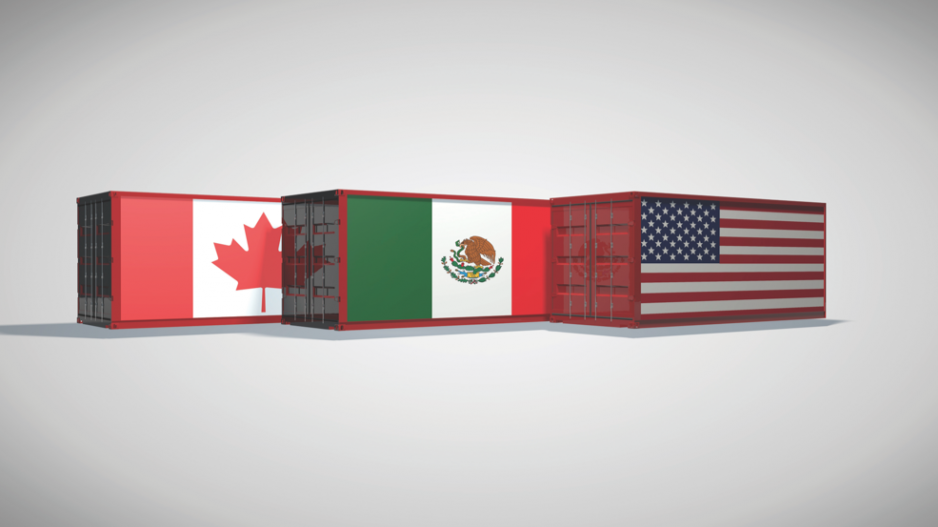The contentious North American Free Trade Agreement (NAFTA) renegotiation talks have been fraught with rhetoric and threats by Donald Trump to pull the United States out of the deal, but Canada’s ambassador to the U.S. says he’s hopeful an agreement in principle can be reached by the end of March.
Speaking at an Energy Council of Canada event in Ottawa February 5, envoy David MacNaughton said that enough progress had been made to date that a resolution is possible.
“I’m optimistic about and look forward to the expansion of the relationship rather than the status quo or the contraction of it. We can’t possibly see that happening in isolation with the rest of our trading relationship and our security relationship,” he said.
“Which is why I am pressing our government, the Mexicans and the United States negotiators as hard as I can and encouraging everyone to see if we can’t work over the next two months to get some resolution to our NAFTA discussions.”
Later, MacNaughton told reporters: “I would love to see a deal done. We’ve made tremendous progress on some of the less spectacular things.”
With only two months left in the current negotiating schedule, MacNaughton hopes the tone and tenor of the NAFTA talks will improve.
“Our challenge isn’t whether Canada is going to win against the United States or if the United States is going to win against Canada and Mexico, it is whether or not we remain competitive on a global basis with the rest of the world. And the more … we spend our time worrying about who’s winning and losing, that challenge will be more and more difficult.”
At the same event, U.S. ambassador to Canada, Kelly Craft, offered little in the way of detail as to how her country sees the NAFTA talks progressing in the coming weeks.
“The United States wants NAFTA modernizations to strengthen the North American energy revolution and promote North American energy security and self sufficiency,” she said.
“To do this we will ensure that NAFTA 2.0 maintains duty-free trade in energy goods and locks in Mexico’s 2013 energy market reform. But a separate energy chapter must add value, not duplicate obligations found in other chapters.”
Canada-U.S. energy relationship
MacNaughton said the Canada-U.S. energy relationship needs to continue to evolve, adding that in his view maintaining the status quo is not the best path forward.
“In talking to some of the executives before this [event] I heard words like, ‘If it ain’t broke, don’t fix it.’ And I think to some degree that is illustrative of the Canada-U.S. relationship generally. For the most part it works extremely well. And I can understand those in the business community who are worried about uncertainty, who listen to political rhetoric, and get worried and say, ‘Just leave it the way it is,’” he said.
“And unfortunately, that’s not a view I share. I do not believe in going backwards. But I think we face so many challenges at the present moment—not just in the energy sector but in all of the business areas we face in this country and the United States and some of the geopolitical challenges—that by standing still we will fall behind.
“So I’m more ambitious than simply saying, ‘If it ain’t broke, don’t fix it.’ I think there are new challenges that we face in the energy world, new challenges we face in the trade world and new challenges we face in our security. That means we do need to update what we’re doing."
MacNaughton added that increased collaboration within the NAFTA framework is required to get “community acceptance” for things like pipelines and other major infrastructure projects.
“One of the things we can do in Canada, the United States and in Mexico is to look at how we can do these projects in a modern, sensitive way. Not just in terms of the economics of it, but also to deal with those who are affected, whether they be the landowners, whether it’s Indigenous peoples, whether it be environmentalists and the like,” he said.
“And I don’t think that needs to delay projects; I think, in fact, if you do it right up front, it will actually speed the approval and make it more certain.”




